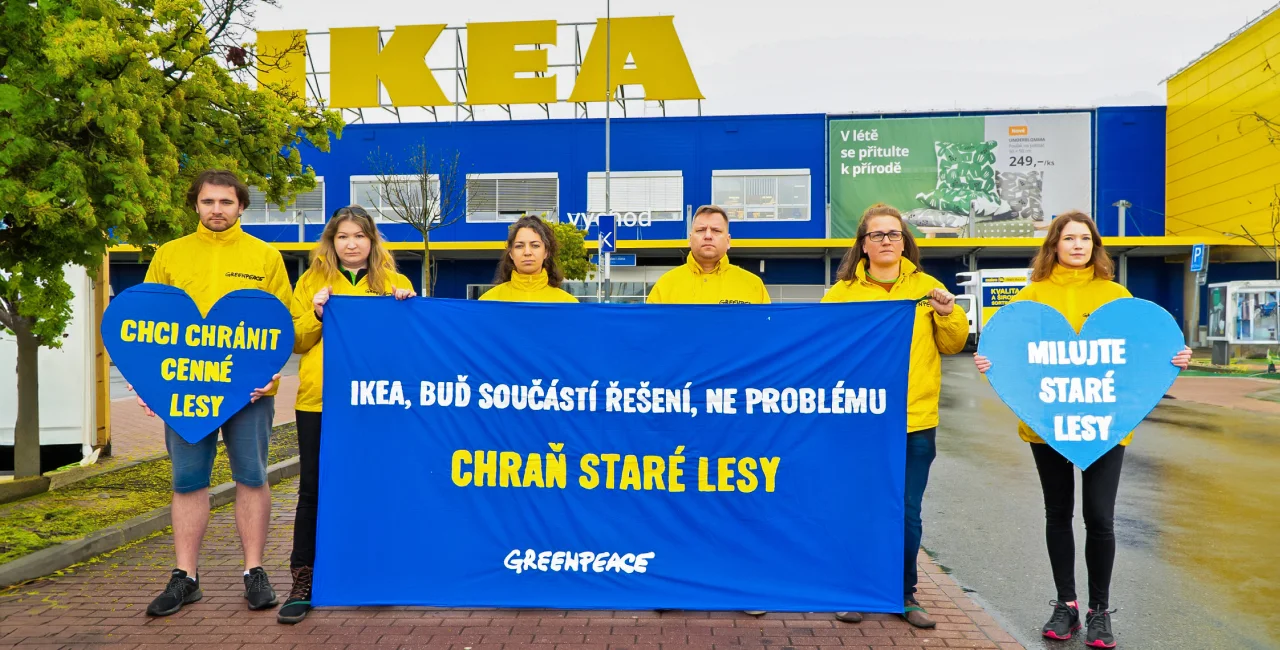Activists from the environmental protection organization Greenpeace gathered Wednesday in front of IKEA stores across the Czech Republic, accusing the Swedish furniture conglomerate of destroying rare old forests in the Romanian Carpathians to make its products.
Exploited goods sold in Czechia
According to Greenpeace, wood for some of the company’s products supplied by Romanian manufacturers Plimob and Masifpanel comes from protected forests. These items are currently sold at IKEA stores in Prague, Ostrava, and Brno, where activists also appeared.
Demonstrators stood outside the IKEA store in Prague’s Zličín, handing out leaflets and holding banners (one of which read “Love and protect old-growth forests”) detailing IKEA’s activities. They assembled furniture – such as a bed and chair – made from wood sourced from the Romanian Carpathians, inviting passers-by to sit on the furniture and take pictures of posters alerting the public to the misuse of Romanian forests.
Jan Freidinger from Greenpeace Czech Republic emphasized the urgency of the situation, stating: "IKEA is a big global player that can help change this situation and help us enforce the proper protection of old-growth forests."
Greenpeace sees the lack of protection for these forests due to companies and authorities avoiding labeling them as “virgin forests or forests of high nature-conservation value. The organization urges IKEA and other companies to take responsibility and help protect these vital ecosystems.
IKEA counters Greenpeace claims
A recent report by Greenpeace Central and Eastern Europe found that all logging sites associated with IKEA manufacturers in the Romanian Carpathians displayed clear signs of abusing the environment.
Ikea Czech Republic defended itself in response to the report. Spokesperson Petr Šašek said: "The wood procurement procedures mentioned in the Greenpeace report are legal and comply with local and EU regulations.” Šašek added: “We do not use wood from protected old forests for our products.” Ikea also countered Greenpeace’s method of defining what old-growth forests constitute, saying that age is not the only criterion.
The Carpathian forests are home to diverse flora and fauna and are one of the most important refuges for biodiversity in Europe, according to Greenpeace. However, only 2.4 percent of the Carpathian forests in Romania are currently protected from logging, leaving the majority at risk of exploitation.












 Reading time: 2 minutes
Reading time: 2 minutes 

























